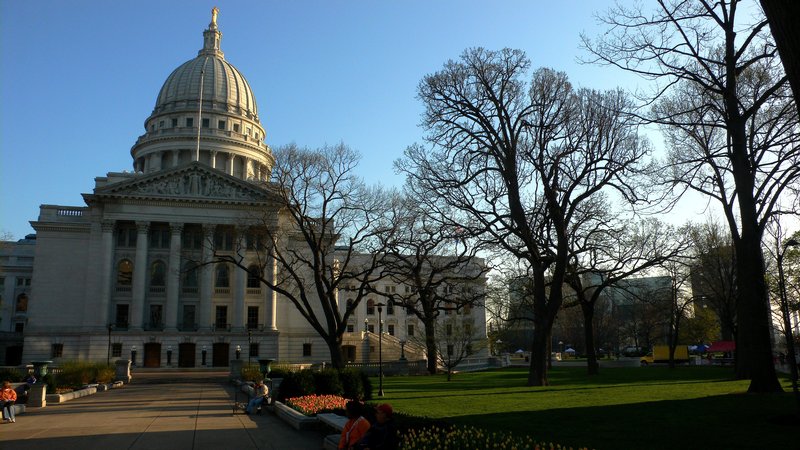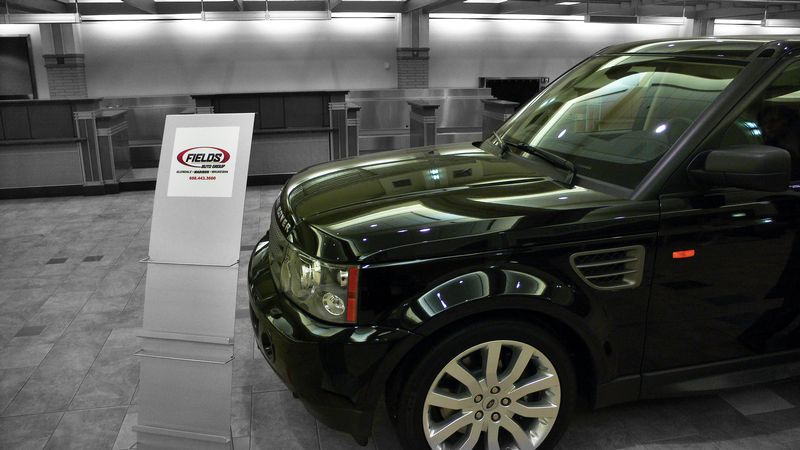In the movement to blanket cities with Wi-Fi, economic realities are setting in as service providers look to tweak their business models to turn a profit. Since the municipal Wi-Fi movement started taking shape a couple of years ago, politicians, community organizers and the companies building the networks have touted Wi-Fi as a cheap solution to a myriad social and economic problems plaguing cities today. Some cities see it as a way to bridge the digital divide, while others see Wi-Fi as providing a third alternative to a broadband market dominated by the cable and phone companies. Up to this point, the financial risk has mostly fallen on the service providers that have put up the capital to build the wireless mesh networks.
Obama Blows it on MySpace
Micah Sifry has a great example of how the Obama campaign staff crushed a volunteer that had generated a huge following on MySpace. When the site Joe Anthony had sweated over reached epic proportions, the Obama campaign decided they needed to take control. So rather than hire the guy (or even fly out to meet him to interview/qualify him for the job) or even pay him a nominal sum ($40 k or so, for years of labor, a bargain no matter how you cut it), they went to MySpace (a company they were paying oodles to to help them promote the campaign at levels much less than Anthony’s site) to seize control of the it.
Robb has a new book out “Brave New War“, worth checking out.
OTOH, he’s done the right thing on debate media, via Lessig.
American Masters: Ahmet Ertegun
“I think it’s better to burn out than to fade away… it’s better to live out your days being very, very active – even if it destroys you – than to quietly… disappear…. At my age, why do you think I’m still here struggling with all the problems of this company –
because I don’t want to fade away.”
-Ahmet Ertegun
More than most in the $5 billion-a-year global industry he helped build from scratch, Ahmet Ertegun loved the rhythm and the blues. He loved the rock and the roll, jump and swing, and all forms of jazz. More than anything, he loved the high life and the low. When he died at the age of eighty-three on December 14th, about six weeks after injuring himself in a backstage fall at a Rolling Stones concert at the Beacon Theater in Manhattan, the world lost not only the greatest “record man” who ever lived but also a unique individual whose personal and professional life comprised the history of popular music in America over the past seventy years. On every level, the story of that life is just as rich, varied and exotic as the music that Ahmet brought the world through Atlantic Records, the company he founded in 1947 and was still running at the time of his death.
More here.
Big Political Donors are also Tax Shelter Players
Walter F. Roche Jr. and Michael A. Hiltzik:
What’s a politician to do upon discovery that a generous billionaire donor turns out to be a major tax dodger? It’s a dilemma already encountered by the Republican and Democratic parties in this season of unprecedented political fundraising.
At a time when newly powerful Democrats, including presidential hopeful Sen. Hillary Clinton of New York, are pressing for aggressive pursuit of unpaid tax bills to boost federal revenue, the party’s biggest financier and prominent Clinton backer is tied to one of the largest individual tax avoidance schemes on record.
And two Republican billionaires — Texas brothers who have poured a small fortune into supporting the presidential bids of two George Bushes and, more recently, Sen. John McCain (R-Ariz.) — were accused last year of exploiting offshore havens to escape taxes on nearly $200 million in gains.
Amid predictions that the 2008 presidential campaign will be the most expensive in history, with spending possibly topping $1 billion, pressure to raise huge sums of cash is a certainty. For candidates, the question is whether the headlong pursuit of deep pockets may also risk embarrassment over their donors’ financial baggage.
Sheila Krumholz, executive director of the Washington-based Center for Responsive Politics, said that candidates sometimes have to make their own “cost-benefit analysis.”
Fabulous Gallery of Recent North Korea Photographs

Yannis Kontos pays a visit, by Marianne Fulton:
If one is tempted to think photography isn’t important – witness North Korea.
Photojournalists are not welcome and their attempts to obtain a visa are rejected, as were those of Yannis Kontos. He tried for three years to travel to North Korea as a professional photographer. He wrote in his November 2006 Dispatch [http://www.digitaljournalist.org/issue0611/dis_kontos.html] that his luck changed when he traveled as a tourist. But tourist cameras are also restricted to choreographed events and sites.
Kontos described his working conditions while trying to capture everyday life, in part:
“Almost 80 percent of my pictures were taken in secret using several different methods to avoid the attention of my minders. Frequently acting and feeling like a spy using my camera’s self-timer, most of the time I was shooting without looking at the viewfinder, even from inside a bus or a train. I managed to catch the mood of the country and little by little I collected enough material for a story. Every night, I was downloading my pictures in secret to my MP3 player, unbeknownst to my roommate. …
Red Tape for Tourists visiting the US
America is rated the world’s most unfriendly destination for foreign travellers in a recent global poll. The War on Terror (which includes a $15 billion fingerprinting program that humiliates every visitor to America’s shores and has yet to catch a single terrorist) has destroyed America’s tourist industry, killing $94 billion worth of tourist trade, and 194,000 American jobs.
There’s something to this challenging issue. A driver on Hong Kong told me recently that passengers destined for most countries, other than the USA can check in (and check luggage) downtown, then take the train to the airport and go right to the gate. The security “friction” does have significant costs all around.
Shattering the Bell Cure: The Power Law Rules
Life isn’t fair. Many of the most coveted spoils–wealth, fame, links on the Web–are concentrated among the few. If such a distribution doesn’t sound like the familiar bell-shaped curve, you’re right.
Along the hilly slopes of the bell curve, most values–the data points that track whatever is being measured–are clustered around the middle. The average value is also the most common value. The points along the far extremes of the curve contribute very little statistically. If 100 random people gather in a room and the world’s tallest man walks in, the average height doesn’t change much. But if Bill Gates walks in, the average net worth rises dramatically. Height follows the bell curve in its distribution. Wealth does not: It follows an asymmetric, L-shaped pattern known as a “power law,” where most values are below average and a few far above. In the realm of the power law, rare and extreme events dominate the action.
For Nassim Taleb, irrepressible quant-jock and the author of “Fooled by Randomness” (2001), the contrast between the two distributions is not an amusing statistical exercise but something more profound: It highlights the fundamental difference between life as we imagine it and life as it really is. In “The Black Swan”–a kind of cri de coeur–Mr. Taleb struggles to free us from our misguided allegiance to the bell-curve mindset and awaken us to the dominance of the power law.
Hoi An Market
Farmers Market on a Beautiful Saturday Morning
The Dane County Farmer’s Market is gathering steam this spring. Loads of spinach, some asparagus, boxes of tomatoes and many flowers were on offer early this morning. 



Many more Farmer’s Market photos can be found here.
From the other side of the world, Hoi An market.
Madison 2007

The scene: 6:00a.m., Dane County Regional Airport. Bleary eyed traveller is amazed that Madison now has a fashionable Range Rover SUV on display (floor advertising via Fields Auto) at the airport. We’ve crossed some sort of threshold, not sure what to call it…. It seems a long way from the Mayor’s trolleys, however.
